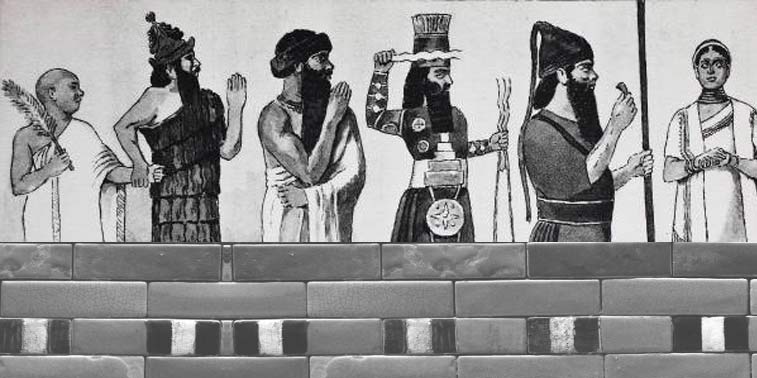April 17, 2023
The concept of birthstones has been around for centuries, with evidence of their use in ancient civilizations dating back to at least the 1st century AD. The origins of birthstones are shrouded in mystery, but many historians believe that the idea originated in ancient cultures such as Babylon, Egypt, and Rome.
In Babylonian culture, the idea of gemstones as a symbol of power and protection was prevalent. The Babylonians believed that certain gemstones had mystical powers that could influence the fate of the wearer. They associated gemstones with the planets and believed that wearing the appropriate gemstone could bring good luck and ward off evil spirits.
The ancient Egyptians were also known to associate gemstones with different meanings and believed that they had healing powers. For instance, the Egyptians used malachite, a green gemstone, to treat eye diseases and other ailments. They also believed that wearing certain gemstones could help ward off illness and promote good health.
The Romans, too, were fascinated by gemstones and believed that they had magical properties. The Roman philosopher Pliny the Elder wrote extensively about gemstones in his Natural History, describing their physical properties and healing properties. The Romans believed that wearing a gemstone associated with the wearer's zodiac sign could bring good fortune and protect against harm.
The concept of birthstones as we know it today may have originated from the Jewish tradition of the breastplate of Aaron. The breastplate was a religious garment worn by Jewish high priests and was adorned with twelve gemstones, each one representing a different tribe of Israel. Over time, these twelve gemstones were associated with the twelve months of the year, and people began to wear the gemstone corresponding to their birth month for good luck and protection.
The modern birthstone list, which was developed by the American National Association of Jewelers in 1912, has standardized the gemstones for each month. However, alternative birthstones for some months have also been suggested, reflecting the diverse cultural and historical origins of birthstones.
In conclusion, the origins of birthstones can be traced back to ancient civilizations such as Babylon, Egypt, and Rome. These cultures believed that gemstones had mystical powers and could influence the fate of the wearer. The concept of birthstones as we know it today likely originated from the Jewish tradition of the breastplate of Aaron, with the modern birthstone list standardized by the American National Association of Jewelers in 1912. The diverse cultural and historical origins of birthstones make them a fascinating and enduring part of human history and tradition.
Leave a Reply
Categories
-
A/B Testing and Personalization Tools
-
Affiliate Marketing
-
Auto Repairing
-
Bakery
-
Beer
-
Bike Insurance
-
Bill
-
Blood Banks
-
Bus
-
Buy
-
Car Designers
-
Car Insurance
-
Carpenters
-
Digital Cameras
-
Doctors
-
Fashion Designers
-
Fleet Management
-
Flowers
-
Freelancer Sites
-
Graphic Designers
-
Health
-
Hospitals
-
Hotel Management
-
Hotels
-
Internet Service Providers
-
Jewelry
-
Lawyer
-
Logo Designers
-
Masons
-
Mobile
-
Mobile Phones
-
New Cars
-
Online Courses
-
Packers & Movers
-
Pizzas
-
Rent
-
Scotch
-
Security Services
-
Sell
-
Sell Cars
-
SEO Services
-
Shoes
-
Tablets
-
Travel Insurance
-
Whiskey








